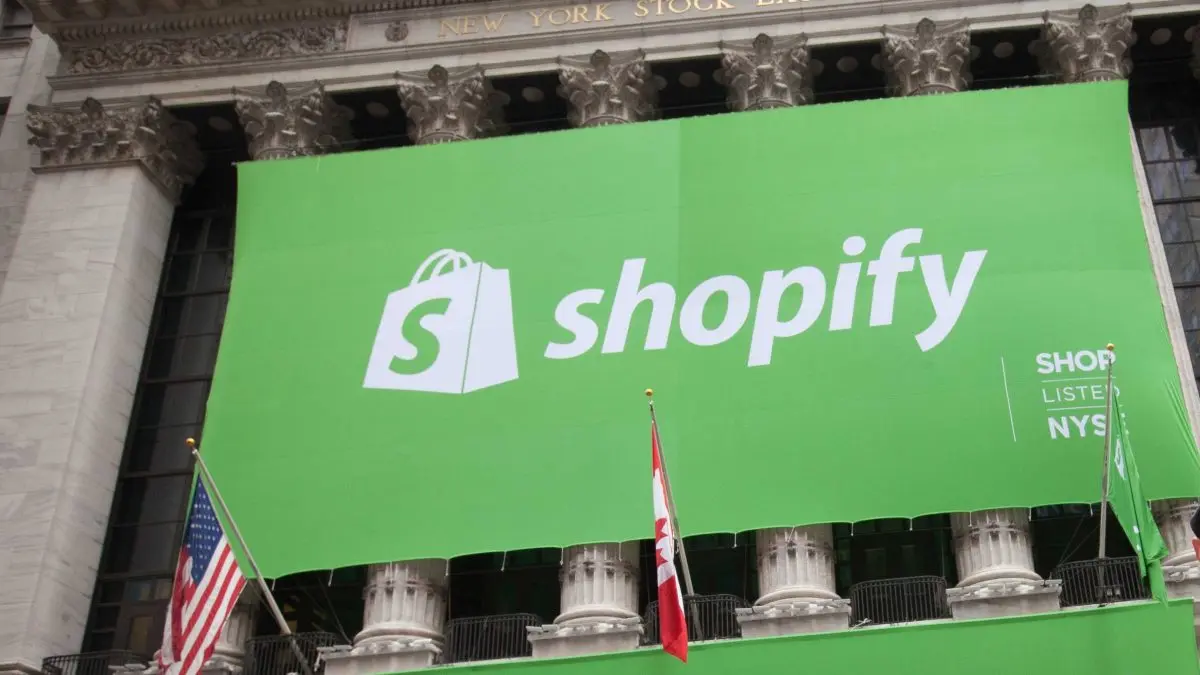Shopify Doubles Down on AI Commerce Revolution with 7x Traffic Surge
2 Sources
2 Sources
[1]
Shopify says AI traffic is up 7x since January, AI-driven orders are up 11x | TechCrunch
E-commerce software provider Shopify is bullish on AI-powered shopping agents, citing AI as an "incredible tool" to enable more entrepreneurs and calling it the "biggest shift in technology since the internet" during its third-quarter earnings call. The company, which partnered with ChatGPT maker OpenAI in September, reported that traffic from AI tools to its online stores is up seven times since January of this year, and purchases attributed to AI-powered search have increased by 11 times. According to Shopify President Harley Finkelstein, the company's advantage in the AI era comes from its ability to access the data from millions of merchants and billions of transactions, and its "founder mode" mentality to ship products quickly. This also includes its internal tools, like Scout, which uses AI to help Shopify employees search hundreds of millions of pieces of merchant feedback to make better product decisions. "And Scout is just one of many tools we're developing to turn our own signals, whether it's support tickets, usage data, reviews, social interactions, or even Sidekick prompts, into fast, informed decisions," Finkelstein said on the call. "If you take away one thing from this call, let it be this: AI is not just a feature at Shopify. It is central to our engine that powers everything we build. In addition to ChatGPT, Shopify is working with Perplexity and Microsoft Copilot on other in-chat shopping experiences. A recent Shopify survey found that 64% of shoppers said they're "likely" to use AI to some extent when making purchases. "We've been building and investing in this infrastructure to make it really easy to bring shopping into every single AI conversation," Finkelstein said. "The fact that we're already working with the leaders in the space should, I think, be a testament to the fact that we want to make sure merchants on Shopify are better prepared than those that are not. It's still obviously very, very early," he continued. "But what we're really trying to do is lay the rails for agentic commerce." While the company is currently focused on building connections with AI agents, it's also prepared for the fact that there will be "different permutations" of how agentic commerce will evolve, Finkelstein also noted, which means it needs to be ready for "whichever path wins." "That was the same thing when social commerce started to get a lot of attention, or when [people realized it wasn't] e-commerce versus physical commerce but . . . this idea of commerce everywhere," he added. Separately, Shopify's Q3 financial results showed revenue up 32% to $2.84 billion, ahead of estimates, and profit of $264 million, or 20 cents per share. However, the stock sagged on news that the company's operating income of $434 million had missed estimates of $437 million.
[2]
Shopify bets big on "agentic commerce" revolution
Shopify is aggressively positioning itself to lead in "agentic commerce," calling AI the "biggest shift in technology since the internet" during its third-quarter earnings call. Shopify President Harley Finkelstein emphasized that AI is not just a feature but "central to our engine that powers everything we build." The e-commerce giant, which partnered with OpenAI in September, reported significant growth in AI-driven traffic. Since January 2025, traffic from AI tools to its online stores has increased sevenfold, while purchases attributed to AI-powered search have grown by 11 times. Shopify is also working with Perplexity and Microsoft Copilot to integrate shopping experiences directly into AI chat conversations. A recent Shopify survey found that 64% of shoppers are "likely" to use AI to some extent when making purchases. Finkelstein stated that Shopify's advantage in the AI era comes from its access to data from millions of merchants and its "founder mode" mentality of shipping products quickly. This includes internal AI tools like "Scout," which helps employees analyze hundreds of millions of pieces of merchant feedback, support tickets, and usage data to make faster product decisions. "What we're really trying to do is lay the rails for agentic commerce," Finkelstein said, adding that the company is prepared for "whichever path wins" as AI shopping evolves. Separately, Shopify reported strong Q3 financial results, with revenue up 32% to $2.84 billion and a profit of $264 million. However, the company's stock fell after its operating income of $434 million slightly missed analyst estimates of $437 million.
Share
Share
Copy Link
Shopify reports dramatic AI-driven growth with 7x increase in AI traffic and 11x rise in AI-powered purchases since January, positioning itself as a leader in 'agentic commerce' through partnerships with OpenAI, Perplexity, and Microsoft.
Shopify's AI Commerce Revolution Gains Momentum
Shopify is positioning itself at the forefront of what it calls "agentic commerce," reporting unprecedented growth in AI-driven shopping activity during its third-quarter earnings call. The e-commerce platform provider has seen traffic from AI tools to its online stores increase sevenfold since January, while purchases attributed to AI-powered search have surged by 11 times
1
.Shopify President Harley Finkelstein described AI as the "biggest shift in technology since the internet" and emphasized that artificial intelligence is not merely a feature but "central to our engine that powers everything we build"
2
. This strategic positioning comes as the company seeks to capitalize on the growing intersection of AI and e-commerce.Strategic Partnerships Drive AI Integration
The company's AI strategy centers on partnerships with leading technology providers. Following its September collaboration with OpenAI, Shopify has expanded its AI ecosystem to include partnerships with Perplexity and Microsoft Copilot
1
. These partnerships enable shopping experiences to be integrated directly into AI chat conversations, creating what Finkelstein describes as "laying the rails for agentic commerce."A recent Shopify survey revealed that 64% of shoppers indicated they are "likely" to use AI to some extent when making purchases, suggesting significant consumer appetite for AI-powered shopping tools
2
. The company is building infrastructure to "make it really easy to bring shopping into every single AI conversation," according to Finkelstein.Data Advantage and Internal AI Tools
Shopify's competitive advantage in the AI era stems from its access to data from millions of merchants and billions of transactions, combined with what Finkelstein calls a "founder mode" mentality for rapid product development
1
. The company leverages this data through internal AI tools like Scout, which helps employees analyze hundreds of millions of pieces of merchant feedback to make faster, more informed product decisions."Scout is just one of many tools we're developing to turn our own signals, whether it's support tickets, usage data, reviews, social interactions, or even Sidekick prompts, into fast, informed decisions," Finkelstein explained during the earnings call
1
.Related Stories
Financial Performance and Market Response
Despite the focus on AI investments, Shopify delivered strong financial results for the third quarter. Revenue increased 32% to $2.84 billion, surpassing analyst estimates, with a profit of $264 million or 20 cents per share
2
. However, the company's stock declined following the announcement that operating income of $434 million fell slightly short of analyst expectations of $437 million.
Source: TechCrunch
The company acknowledges that agentic commerce is still in its early stages and is preparing for "different permutations" of how this technology will evolve. Finkelstein noted that Shopify needs to be ready for "whichever path wins," drawing parallels to the company's approach during the emergence of social commerce and the broader shift toward commerce everywhere
1
.References
Summarized by
Navi
[1]
[2]
Related Stories
Shopify bets big on AI commerce as orders from AI search surge 15x in one year
12 Feb 2026•Technology

Shopify Revolutionizes E-commerce with AI-Powered Store Builder and Enhanced Platform Features
22 May 2025•Technology

AI Partnerships Reshape eCommerce: Personalization and Innovation in Online Shopping
09 Nov 2024•Technology

Recent Highlights
1
Samsung unveils Galaxy S26 lineup with Privacy Display tech and expanded AI capabilities
Technology

2
Anthropic refuses Pentagon's ultimatum over AI use in mass surveillance and autonomous weapons
Policy and Regulation

3
AI models deploy nuclear weapons in 95% of war games, raising alarm over military use
Science and Research





